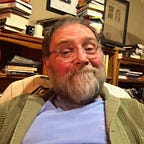More Left Turns
I was nine years old and heard the announcement of his death on the car radio. My mother was taking me to a doctor’s appointment. The reason for the visit has long since faded from memory but learning the director died is still clear. Hoover served eight presidents and became as prominent in the public consciousness as they did. His notoriety was a combination of the work of the FBI under his leadership and the public relations machine he fueled to promote it and him.
When Hoover took over the Bureau of Investigations, the predecessor to the FBI, it was a corrupt and incompetent organization of approximately 600 agents. When he died, the FBI was a 15,000 agent strong world-renowned premier law enforcement agency, protecting the United States from foreign espionage, domestic terrorism, and serious crimes. The FBI elevated forensic science and crime scene techniques and developed training programs to share its expertise with other police agencies in the United States and around the world.
But there was a dark side to Hoover. Paul Letersky, a former FBI agent who served as one of Hoover’s closest aides, talks about it in his book, The Director . Letersky describes J. Edgar as “kind, courteous, thoughtful, fearless, sometimes funny, a perfect gentleman and devout patriot.” But he also acknowledges Hoover could be “vindictive, closed-minded, hypocritical, a man of intense hatreds and eternal grudges, a man who in his sincere belief that he was protecting his country had repeatedly violated the principles of the Constitution on which that country was founded.”
It’s the vindictive man of intense hatred whose corpse gets pulled out and pounded on each year on the anniversary of his death or in the news stories and histories published in-between. He’s the obsessed anti-communist looking for reds under every rock, the homophobe singularly bent on weeding out and exposing homosexuals in government service, and the heavy-footed trampler of rights sanctioning shady surveillance, wiretaps, and break-ins. These characterizations often fail to mention the real threat of soviet and communist agents during his tenure and the damage they caused. Or in looking for homosexuals, the FBI was acting under an executive order signed in 1952 by President Eisenhower, which barred them from federal employment. Also absent is the fact every single one of the eight presidents Hoover served knew of and tacitly approved the use of illegal searches and seizures by the bureau’s agents. Many of these same presidents considered the bureau their personal investigative agency and used them for political purposes, most notably Franklin Roosevelt and Lyndon Johnson. Hoover’s approving the electronic surveillance of Martin Luther King, Jr. still gets headlines, with the stories silent on Attorney General Robert Kennedy’s authorizing him to give the approval.
There is no question Hoover abused the power given him by the presidents he served. But none of them dared to confront or remove him. In May 1964, Lyndon Johnson signed an executive order exempting Hoover from the government’s mandatory retirement age of 70. He immediately followed it with a public announcement, Hoover standing over his right shoulder, saying, “the nation cannot afford to lose you.” Richard Nixon sat down with Hoover in 1971, intending to fire him. Hoover left the meeting not only with his job but the authority to put more agents in foreign embassies. Nixon left the meeting and told his chief of staff, H.R. Haldeman, no one was ever to ask him about his conversation with the director. On his death, Hoover was the only civil servant, before or since, whose body lay in state in the Capitol rotunda.
One of the clubs used to pound on Hoover’s dead body for decades was the allegation he was a homosexual and a cross-dresser. The rumors were an outgrowth of his lifelong bachelorhood and long-term relationship with bureau number two Clyde Tolson and an eyewitness who claimed to have seen J. Edgar in a woman’s dress. There has never been any substantive proof of a romantic relationship with Tolson, and the alleged eyewitness was a convicted perjurer and ex-wife of one of the director’s friends. Regardless of whether it’s true, this weapon has been rightly muted in today’s reputational wars.
In a memoir about his days in the bureau, a Hoover-era agent highlighted one of the former director’s eccentricities. According to the author, when Hoover visited FBI field offices, the special agents in charge were under orders to make sure there were never any left turns in the routes taken to transport him. Hoover was said to have a phobic fear of left turns. It sounds particularly obsessive until you learn the routes mapped for UPS drivers include as few left turns as possible because of the increased risk of accidents and the time and fuel wasted waiting to make the turns.
Just as there’s some context for reducing the number of left turns in a journey, the life of J. Edgar Hoover and his tenure as the longest-serving director of the FBI requires broader examination. Many people today, young and old, who can recall the name J. Edgar Hoover, probably can’t name all eight of the presidents he served. Unfortunately, what they know of him is most likely one-sided. In the future, whenever someone digs up his corpse to give it another wallop, they might consider veering off their narrow narrative path and offer a few left turns. Sure, there’s a danger people will be hit by some oncoming perspective. But history’s about surviving these impacts and learning from them.
Originally published at https://www.joestrupek.com on May 5, 2022.
